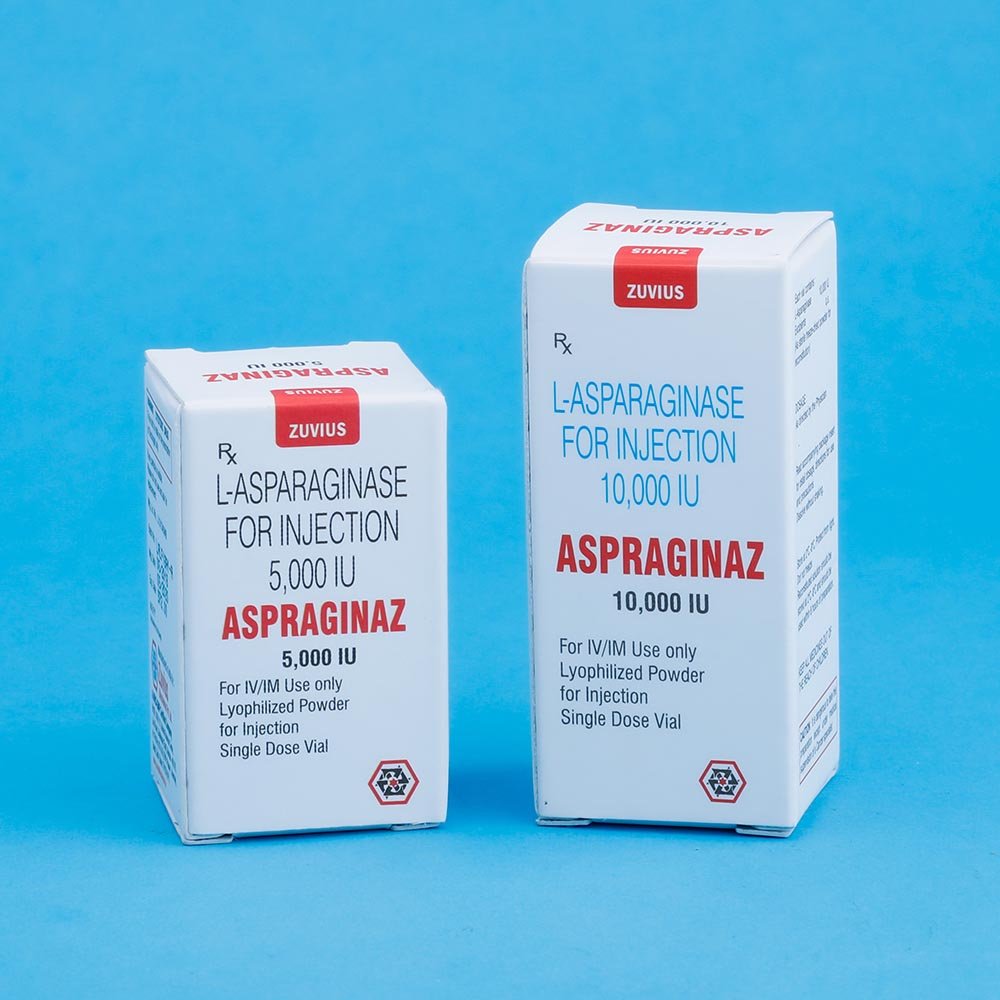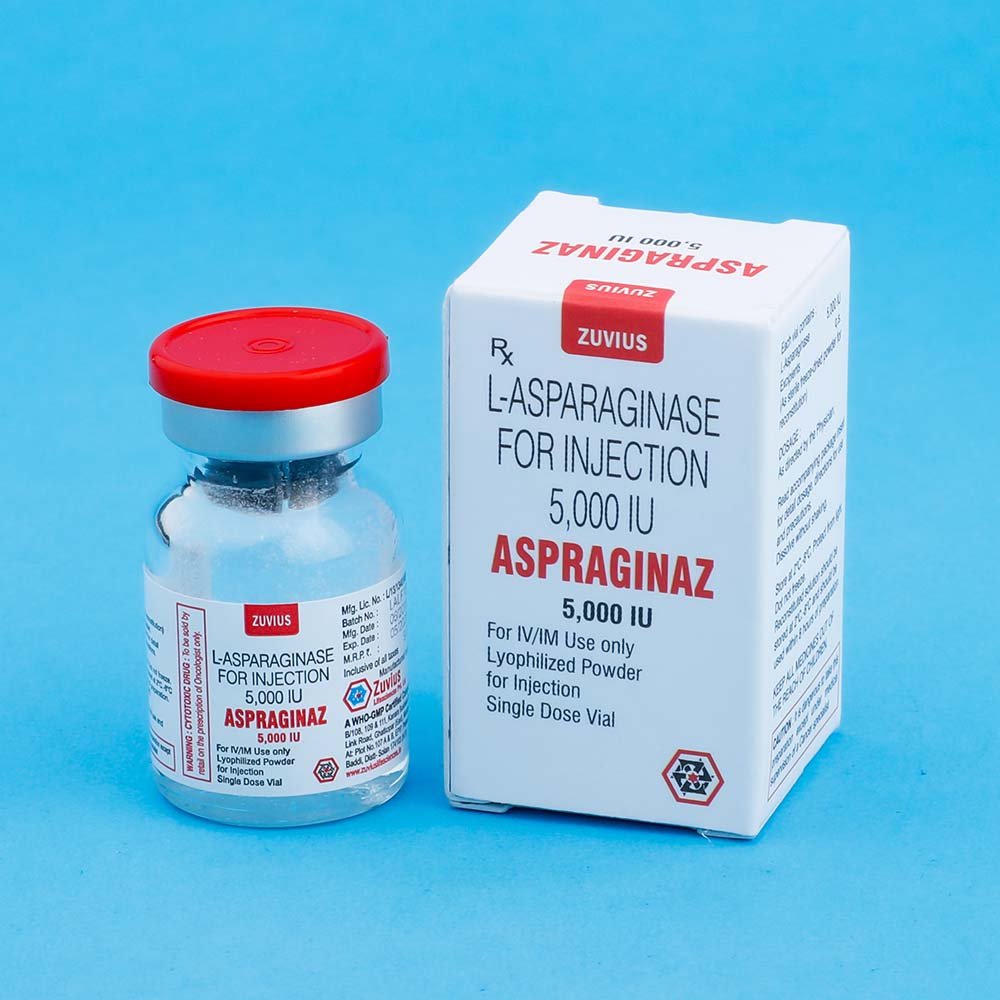Aspraginaz
L- Asparaginase
Strength: 5000 iu / 10000iu
Pack Size: 1 vial
Drug Class: Antineoplastic agents
Dosage and Administration:
The recommended dose of Aspraginaz is 5,000/10000 International Units/m² intramuscularly (IM) or intravenously (IV) three times a week. Parenteral drug products should be inspected visually for particulate matter, cloudiness or discoloration prior to administration, whenever solution and container permit. If any of these are present, discard the solution.
Cold Storage: yes
Aspraginaz(asparaginase) contains the enzyme L-asparagine amidohydrolase, type EC-2, derived from Escherichia coli. Aspraginaz activity is expressed in terms of International Units according to the recommendation of the International Union of Biochemistry. One International Unit of asparaginase is defined as that amount of enzyme required to generate 1 μmol of ammonia per minute at pH 7.3 and 37°C. The specific activity of Aspraginaz is at least 225 International Units per milligram of protein.
Aspraginaz is provided as a sterile, white lyophilized plug or powder.
Aspraginaz is indicated as a component of a multi-agent chemotherapeutic regimen for the treatment of patients with acute lymphoblastic leukemia (ALL).
The mechanism of action of Aspraginaz is thought to be based on selective killing of leukemic cells due to depletion of plasma asparagine. Some leukemic cells are unable to synthesize asparagine due to a lack of asparagine synthetase and are dependent on an exogenous source of asparagine for survival. Depletion of asparagine, which results from treatment with the enzyme L-asparaginase, kills the leukemic cells. Normal cells, however, are less affected by the depletion due to their ability to synthesize asparagine.
- Keep out of reach of children.
- Take as directed by physician.
Anaphylaxis and Serious Allergic Reactions
Serious allergic reactions can occur in patients receiving Aspraginaz. The risk of serious allergic reactions is higher in patients with prior exposure to Aspraginaz or other Escherichia coli-derived L-asparaginases. Observe patients for one hour after administration of Aspraginaz in a setting with resuscitation equipment and other agents necessary to treat anaphylaxis (for example, epinephrine, oxygen, intravenous steroids, antihistamines). Discontinue Aspraginaz in patients with serious allergic reactions.
Thrombosis
Serious thrombotic events, including sagittal sinus thrombosis can occur in patients receiving Aspraginaz. Discontinue Aspraginaz in patients with serious thrombotic events.
Pancreatitis
Pancreatitis, in some cases fulminant or fatal, can occur in patients receiving Aspraginaz. Evaluate patients with abdominal pain for evidence of pancreatitis. Discontinue Aspraginaz in patients with pancreatitis.
Glucose Intolerence
Glucose intolerance can occur in patients receiving Aspraginaz. In some cases, glucose intolerance is irreversible. Cases of diabetic ketoacidosis have been reported. Monitor serum glucose.













